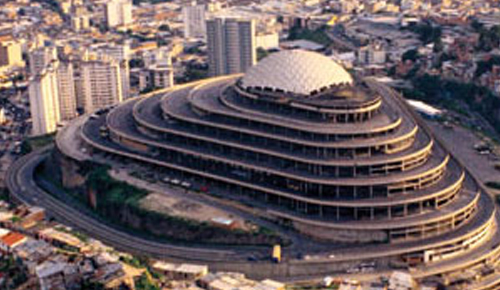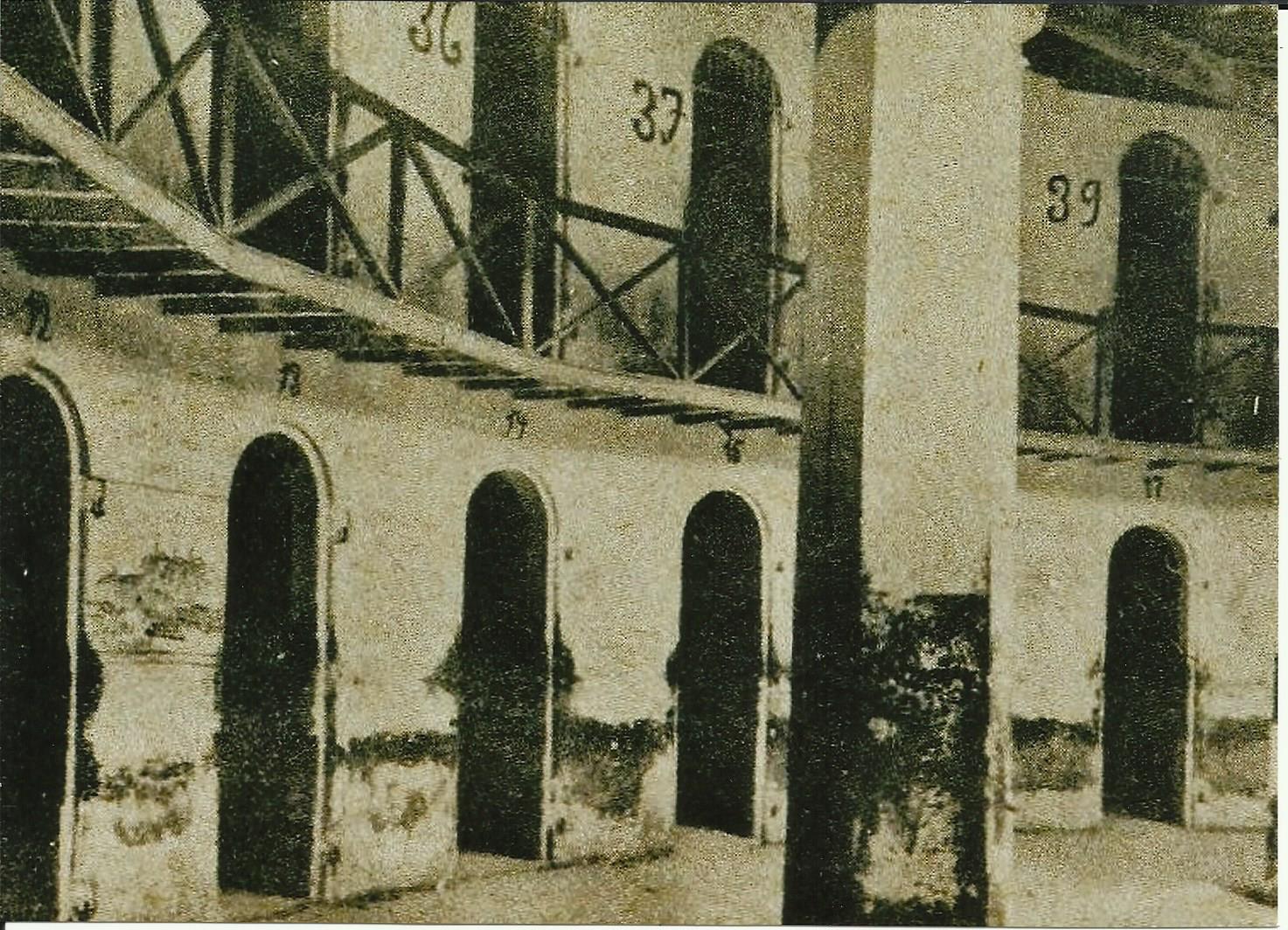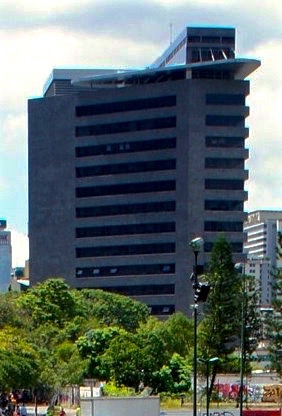Torture In Venezuela on:
[Wikipedia]
[Google]
[Amazon]
 Torture in Venezuela has been a consistent phenomenon in recent years, especially during the crisis in Venezuela. The United Nations,
Torture in Venezuela has been a consistent phenomenon in recent years, especially during the crisis in Venezuela. The United Nations,
 In 1854, a house of correction called "" was built to rehabilitate common criminals. Under President Juan Pablo Rojas Paúl, La Rotunda was converted into a prison. La Rotunda grew in prominence under the governments of
In 1854, a house of correction called "" was built to rehabilitate common criminals. Under President Juan Pablo Rojas Paúl, La Rotunda was converted into a prison. La Rotunda grew in prominence under the governments of
 Under the Bolivarian governments, levels of torture occurred that had not been seen since the dictatorship of Marcos Pérez Jiménez. Following the election of
Under the Bolivarian governments, levels of torture occurred that had not been seen since the dictatorship of Marcos Pérez Jiménez. Following the election of
 Torture in Venezuela has been a consistent phenomenon in recent years, especially during the crisis in Venezuela. The United Nations,
Torture in Venezuela has been a consistent phenomenon in recent years, especially during the crisis in Venezuela. The United Nations, Organization of American States
The Organization of American States (OAS; es, Organización de los Estados Americanos, pt, Organização dos Estados Americanos, french: Organisation des États américains; ''OEA'') is an international organization that was founded on 30 April ...
, Amnesty International
Amnesty International (also referred to as Amnesty or AI) is an international non-governmental organization focused on human rights, with its headquarters in the United Kingdom. The organization says it has more than ten million members and sup ...
, Human Rights Watch and Foro Penal have documented acts of torture and violence towards real or perceived opponents of the Bolivarian government, mainly detainees, including by state institutions such as the Bolivarian National Intelligence Service (SEBIN).
Colonial era
Under rule of the Royal Audiencia of Caracas and the Spanish Inquisition, inhabitants of Venezuela faced serious repression. The Catholic Church served as an important source to royalists, with priests serving as informants who would provide accusations to Inquisition judges because they believed crimes against the Spanish king were crimes against God. Judges then held the power to torture those accused of crimes during interrogations in order to obtain a confession. However, this practice was rare in Spanish-ruled Venezuela since it had already become controversial, even in Europe. When the Royal Audiencia was deposed and the Supreme Junta was established, the Venezuelan Declaration of Independence explicitly stated that the death penalty was abolished, torture was forbidden and that courts would presume innocence. However, as Venezuela began to face conflicts shortly after its independence, repressive behaviors within the government returned.Juan Vicente Gómez dictatorship
 In 1854, a house of correction called "" was built to rehabilitate common criminals. Under President Juan Pablo Rojas Paúl, La Rotunda was converted into a prison. La Rotunda grew in prominence under the governments of
In 1854, a house of correction called "" was built to rehabilitate common criminals. Under President Juan Pablo Rojas Paúl, La Rotunda was converted into a prison. La Rotunda grew in prominence under the governments of Cipriano Castro
José Cipriano Castro Ruiz (12 October 1858 – 4 December 1924) was a high-ranking member of the Venezuelan military, politician and the president of Venezuela from 1899 to 1908. He was the first man from the Andes to rule the country, and was ...
and Juan Vicente Gómez between 1900 and 1935, who heavily utilized the prison for political persecution. Types of punishment and torture included being placed in stocks
Stocks are feet restraining devices that were used as a form of corporal punishment and public humiliation. The use of stocks is seen as early as Ancient Greece, where they are described as being in use in Solon's law code. The law describing ...
, strappado
The strappado, also known as corda, is a form of torture in which the victim's hands are tied behind his back and the victim is suspended by a rope attached to the wrists, typically resulting in dislocated shoulders. Weights may be added to t ...
, ball and chain, having a rope tightened around your temple and having poison or ground glass placed into food. It was not uncommon that prisoners were tortured or starved to death.
Marcos Pérez Jiménez dictatorship
Under the dictator Marcos Pérez Jiménez, Venezuelan authorities held little regard for the human rights of citizens. Police often raided homes without search warrants and individuals were imprisoned without evidence. While initially detained, individuals faced torture in instances of interrogation. Political police targeted, arrested, tortured and killed his opponents. Those who were attacked include future Venezuelan president Rómulo Betancourt, Jaime Lusinchi and Luis Herrera Campins. Lusinchi was jailed for two months in 1952 and was beaten with a sword.Democratic era
According to Human Rights Watch, theCarlos Andrés Pérez
Carlos Andrés Pérez Rodríguez (27 October 1922 – 25 December 2010) also known as CAP and often referred to as '' El Gocho'' (due to his Andean origins), was a Venezuelan politician and the president of Venezuela from 12 March 1974 to 12 M ...
administration also tortured and executed opponents with a judicial branch that largely ignored abuses by his government. The and DISIP
DISIP (General Sectoral Directorate of Intelligence and Prevention Services) was an intelligence and counter-intelligence agency inside and outside of Venezuela between 1969 and 2009 when SEBIN was created by former President Hugo Chavez. DISIP was ...
were used as tools to persecute dissenters. Following the 1992 Venezuelan coup d'état attempts
Year 199 ( CXCIX) was a common year starting on Monday (link will display the full calendar) of the Julian calendar. At the time, it was sometimes known as year 952 ''Ab urbe condita''. The denomination 199 for this year has been used since the ...
, a crackdown on alleged plotters resulted in accusations of torture by those arrested.
Bolivarian Revolution
 Under the Bolivarian governments, levels of torture occurred that had not been seen since the dictatorship of Marcos Pérez Jiménez. Following the election of
Under the Bolivarian governments, levels of torture occurred that had not been seen since the dictatorship of Marcos Pérez Jiménez. Following the election of Hugo Chávez
Hugo Rafael Chávez Frías (; 28 July 1954 – 5 March 2013) was a Venezuelan politician who was president of Venezuela from 1999 until his death in 2013, except for a brief period in 2002. Chávez was also leader of the Fifth Republ ...
, human rights in Venezuela deteriorated. According to Universidad Metropolitana
The Metropolitan University ( es, Universidad Metropolitana) (Unimet) is a Venezuelan university founded in 1970 by a group of entrepreneurs led by Eugenio Mendoza Goiticoa in the terrains donated by the businessman Pius Schlageter, father of ...
in 2006, "the inquisitorial process" that was abolished in the Venezuelan Declaration of Independence returned to Venezuela. By 2009, the Inter-American Commission on Human Rights
The Inter-American Commission on Human Rights (the IACHR or, in the three other official languages Spanish, French, and Portuguese CIDH, ''Comisión Interamericana de los Derechos Humanos'', ''Commission Interaméricaine des Droits de l'Homme'', ...
released a report stating that Venezuela's government practiced "repression and intolerance".
During the presidency of Nicolás Maduro
Nicolás Maduro Moros (; born 23 November 1962) is a Venezuelan politician and president of Venezuela since 2013, with his presidency under dispute since 2019.
Beginning his working life as a bus driver, Maduro rose to become a trade unio ...
, torture in Venezuela increased. In La Tumba
''La Tumba'' (''The Grave'') is a 1964 novel written in Spanish by José Agustín. It is a short novel, originally written as a series of tales ("Tedium") in a literary workshop.
Some people considered the novel controversial because it freely t ...
(''The Tomb''), one of the headquarters and prisons of SEBIN, has been used for white torture and some of its prisoners have attempted suicide. Conditions in La Tumba have resulted with prisoner illnesses, though Venezuelan authorities refuse to medically treat those imprisoned. Bright lights are continuously left on and prison cells are set at near-freezing temperatures.
In December 2014, the United States signed Venezuela Defense of Human Rights and Civil Society Act of 2014
The Venezuela Defense of Human Rights and Civil Society Act of 2014S. 2142 is a United States law used to impose targeted sanctions on certain individuals in Venezuela that were responsible for violations of human rights of antigovernment protes ...
to impose targeted sanctions on Venezuelan individuals responsible for human rights violations as a result of the 2014 Venezuelan protests. The law allows the freezing of assets and visa bans for those accused of using acts of violence or violating the human rights of those opposing the Venezuelan government. In March 2015, the United States froze assets and revoked visas of several senior officials connected to human rights abuses in Venezuela; these sanctions were condemned in Latin America.
In November 2014, Venezuela appeared before the United Nations Committee Against Torture over cases between 2002 and 2014, which criticized the Venezuelan National Commission for the Prevention of Torture for being biased in favor towards the Bolivarian government. The Committee had also expressed concern with "beatings, burnings and electric shocks in efforts to obtain confessions" that occurred during the 2014 Venezuelan protests
In 2014, a series of protests, political demonstrations, and civil insurrection began in Venezuela due to the country's high levels of urban violence, inflation, and chronic shortages of basic goods attributed to economic policies such as strict ...
and that of the 185 investigations for abuses during the protests, only 5 individuals had been charged. United Nations Special Rapporteur on Torture
The United Nations Special Rapporteur on Torture and Other Cruel, Inhuman or Degrading Treatment or Punishment is a United Nations special rapporteur. The office is currently filled by Alice Jill Edwards, since 1 August 2022 ), previously Nils Mel ...
Juan E. Méndez
Juan E. Méndez (born December 11, 1944) is an Argentine lawyer, former United Nations Special Rapporteur on Torture and Other Cruel, Inhuman or Degrading Treatment or Punishment, and human rights activist known for his work on behalf of political ...
stated on 11 March 2015 that Venezuela had ignored requests for information and that he had made "conclusions based on the lack of response" and "concluded that the government violated the rights of prisoners", further saying that the Maduro government failed "with the obligation to investigate, prosecute and punish all acts of torture and cruel, inhuman or degrading treatment
Cruel, inhuman or degrading treatment (CIDT) is treatment of persons which is contrary to human rights or dignity, but is not classified as torture. It is forbidden by the Universal Declaration of Human Rights, Article 3 of the European Convention ...
".
During the 2017 Venezuelan protests
The 2017 Venezuelan protests were a series of protests occurring throughout Venezuela. Protests began in January 2017 after the arrest of multiple opposition leaders and the cancellation of dialogue between the opposition and Nicolás Maduro's g ...
, more than 290 cases of torture and thousands of extrajudicial executions were documented by the Organization of American States.
Foreign involvement
TheOrganization of American States
The Organization of American States (OAS; es, Organización de los Estados Americanos, pt, Organização dos Estados Americanos, french: Organisation des États américains; ''OEA'') is an international organization that was founded on 30 April ...
, with information provided by Casla, reported that some of the 46,000 members of the Cuban Revolutionary Armed Forces assisting the government of Nicolás Maduro were involved with torturing Venezuelans who opposed Maduro. Prisoners reported that they recognized Cuban accents among those who were torturing them.
References
{{Torture by country